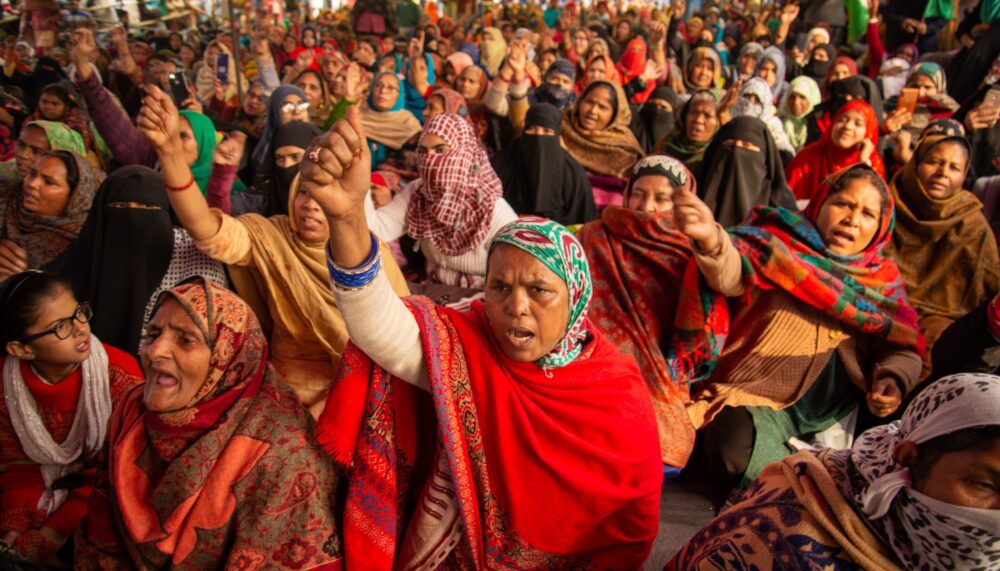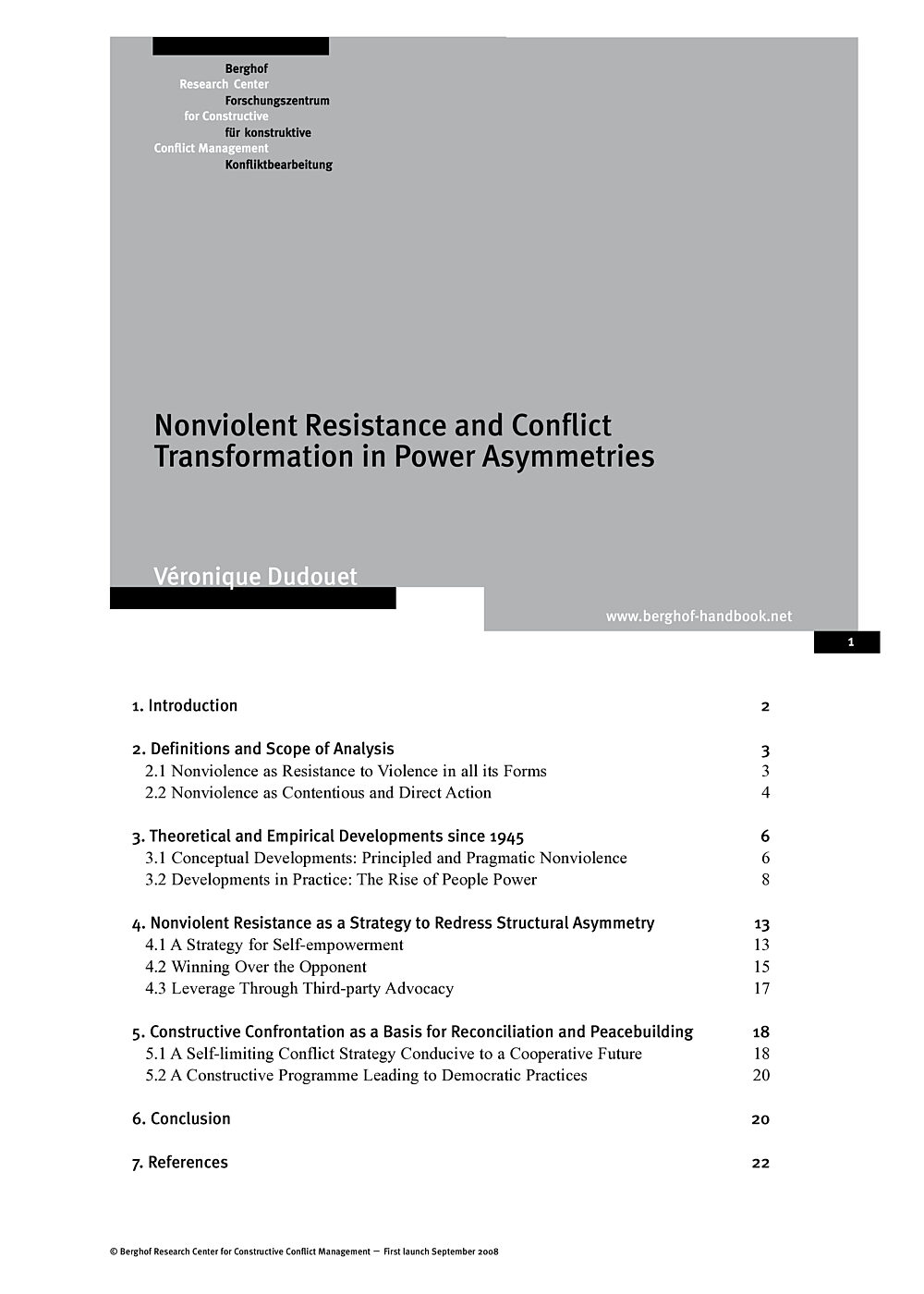FEATURE | 3 May 2022
Peaceful protest movements: Challenges for nonviolent resistance and international support

During our online event we identified similarities of nonviolent movements and gained key insights for successful international support.
Change only has a chance if it comes from within. Nonetheless, there are many ways in which international organisations can support peaceful protest movements and their potential for sustainable change and constructive transformation of conflict. On 3 March 2022 Berghof invited three civil society activists involved in peaceful protests movements in Sudan, Colombia, and Belarus as well as two practitioners from peacebuilding organisations to talk about the challenges of nonviolent resistance, and how the international community, and peacebuilding organisations in particular, can support protest movements in sustaining their peaceful struggle. On the activist side Francisco Maltés, President of Central Unitaria de Trabajadores in Colombia, Olga Kavalkova, leading pro-democracy activist in Belarus, and Mai Azzam, researcher and activist in Sudan joined the discussion. Nico Plooijer, Senior Policy Adviser on Civic Space at PAX Netherlands and a Program Officer for the Nonviolent Action Program at the U.S. Institute of Peace, brought the perspectives from the practitioners and peacebuilding support side to the panel.
Often peaceful protest movements gain support and legitimacy by winning the moral high ground. In Belarus in 2020, this was clearly the case.
Attributes that make peaceful protest movements successful
Overcoming fragmentation: Social movements never are homogeneous. Instead, they are made up of different groups with sometimes diverging interests and objectives. The examples from Sudan and Belarus show that movements are most successful when they manage to overcome fragmentation and unify behind a shared goal. During peaceful protests in Belarus in 2020, for example, activists successfully rallied behind a common agenda: Freedom, freedom of choice and respect for basic rights. In Sudan, the 2019 revolution which ousted President Omar al Bashir was also made possible by a unification of previously diffuse opposition groups.
Keeping persistence: Political change through protest requires time, in particular if the peaceful movement is fighting against authoritarian structures. In Sudan, the success of 2019 was born out of youth mobilisations that started already in 2010. The movement was scattered and harshly repressed. But the idea remained, the groups withdrew to private circles and became public again after the military coup in October 2021. The establishment of organisational structures was key to maintain mobilisation even in times of low public attention or harsh repression. Local level neighbourhood resistance committees helped to organise and sustain the protests at the grassroots level, and to reactivate street mobilisation after the coup.
Gaining moral ground: Often peaceful protest movements gain support and legitimacy by winning the moral high ground. In Belarus in 2020, this was clearly the case. The movement’s representatives were expected to curse on their repressive opponents. But they talked politely and abstained from using violence and by doing so contributed to being acknowledged and respected. Forceful or violent resistance might have had caused more deaths, and possibly even a Russian intervention, as was seen recently in Kazakhstan.
Gaining political and social impact by shaping public discourses: Although the popular movement launched in Colombia in early 2021 did not intend to overhaul the whole political system but focused on increased taxes, corruption, and health care reforms proposed by the government, the reform agenda which it promoted became part of Colombian political discourse. Often it is thanks to the protests that a political alternative, calling for a social agenda, can have a realistic chance to be voted for. Indeed, Colombian leftist candidates make historic gains in legislative elections in March 2022.

Challenges in cooperation with peacebuilding organisations
Different modus operandi: Protest movements are very action orientated, are willing to take risks and sometimes even aim to intensify conflict, albeit in a peaceful way. Peacebuilding organisations, on the other hand, are often driven by a long-term ideal, are rather slow and very bureaucratic in their set-ups. They are risk averse, and focus on (re)establishing dialogue and harmony. Because of these differences, peacebuilding organisations often fail to acknowledge protest movements as important conflict stakeholders, and hence rarely engage directly with them.
Agency: External actors need to respect and value the agency of peaceful protest movements. They can provide support, but they cannot be drivers of a process or speak for movements.
Limited attention span: The international community has short and limited attention for any single conflict. So even when there is strong and outspoken support by world powers, typically at the beginning of a crisis, protest movements too often cannot rely on this support. One example is the military coup in Sudan in 2021 that was condemned internationally at its start but is not at the centre of attention anymore, leaving the unarmed population to face oppression by Sudanese military forces alone, without international support.
Delegitimisation: (Suspected) support by external actors, and from especially Western countries, can in some cases also delegitimise movements vis a vis their supporters and their opponents alike. Depending on the situation in the region, the allegation of being supported by external actors can cause real harm and provoke brutal repression. During the uprising in Belarus, the pro-democracy movement would have risked Russian intervention if it had received direct and visible international support by Western countries. In Colombia, the government tried to stigmatise the social protests in 2021 by throwing all kinds of accusations against their leaders, including alleged links to various armed actors, which the movement was able to dismiss.
Opportunities for international support
Researching, documenting and supporting peer learning: External actors can support protest movements by documenting, recording and witnessing peaceful protests and the state’s reaction towards them. They can also provide platforms for activists to share their experiences with their peers, who may face similar challenges. Peer-exchange on lessons learned can help movements avoid recurring mistakes. Research and documentation can also help raise the awareness of policy-makers and peacebuilding agencies for opportunities for democratisation through a regime change that is fought for with nonviolent means.
Promoting one vision: International, but also regional actors can support protest movements in building unity and promoting a joint vision for change by providing technical support. Establishing dialogue and meeting spaces where activists can come together, coordinate and identify shared goals, and agree on common strategies can be one way to do that.
Strengthening acknowledgement: The international community should work towards acknowledging peaceful protest movements as drivers for peace. Movements should also be recognised and valued for their contribution to addressing structural violence, such as inequality, injustice, oppression and other forms of power misuse by dominant elites.
Showing solidarity: Peaceful protest movements need very tangible support. External actors, such as NGOs and diplomats, can promote peaceful protests and protect activists by attending demonstrations themselves, countering propaganda and misinformation on the internet, and speaking out in support of detained and endangered activists.
The Berghof Foundation has been committed to nonviolence and peaceful conflict transformation for over half a century. We support all actors that pursue social change peacefully and we condemn violent actions in all their forms. You can find out more about our work with these groups here.
Media contact
You can reach the press team at:
+49 (0) 177 7052758
email hidden; JavaScript is required


